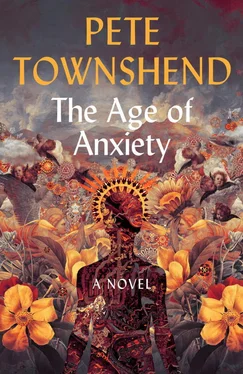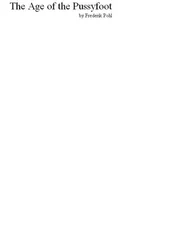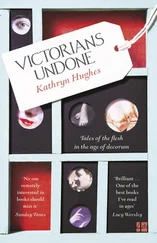Iam tempted, as I continue to confess, a narrator, to talk about myself. I am aware that in groups of people—friends, families, and associates—trends of thinking can spread in an unhealthy way. I am also aware that good and positive energies and theses can be shared as well; faith in nature and in human potential for good can be nurtured through conversation and enthusiasm for art and literature and the fine works of great men and women from history.
Rain was an exception. Once she let go of any notion that she might one day marry Walter she took off like a lark. Freed from one man she found many enthusiasms. She was in love and beset by infatuation and in love again almost every time I saw her—each time with a new and fabulous conquest that I had to remind myself could be either male or female. If she was Siobhan’s lover it was clearly not a monogamous relationship. As Rain was my daughter, my girl, Walter was my son—a godson, but my boy. I continued to do things for Walter, I helped open in him doors of perception and creativity that his father had failed to do, despite the fact that he was a musician himself. I encouraged him to develop that sense of the people around him; his immediate peers, appointing them as the commissioners of his role as a creative writer and composer—working entirely on their behalf, for their pleasure and enthrallment. I guided him in the business of listening and waiting, the two most important abilities for a composer.
What I did not do was prepare him for the deleterious side effects of madness.
Gasping, moaning, cries of orgasm, women weeping and panting in the pain of childhood, men reeling from punches, children crying, laughter, gulping air, shouts, screams, hollers. What is this sound? Humanity, making its noises. Babbling conversation in a hundred languages, singing, chanting, a face being slapped, a slash of a blade, the sound of a fall, a slip, a slide, the crash of a human body as it lands after a fall from a high building. Oof! Ungh! Aaah! All those exclamations gathered from a million comic books, a dozen Elmore Leonard crime novels, all sounding in a single minute of time. Calls, one to another, in panic or in friendship, a mother to a child, a child to a lost mother, one child to another, one football player to another in the middle of a game. The sound of a kiss being started, broken. Entreaties, endearments, pet names in endless and absurd lists, meaningless, puerile, sweet, silly. Orgies, battles, street fights, audiences at rock shows, the circus. Shouting loud enough for God to hear. Silent muttering prayers, litanies, under-the-breath aspirations and requests, hopeful pleas. Shouts. Then a painful birth, remembered as an echo in an explosion of brilliant yellow rays.
Summoned to Walter’s music studio in his garden at Sheen I admit I felt a mixture of excited anticipation at what Walter might play me and anxiety about his mental condition. On the telephone he had sounded scattered, confused, and unfocused.
“I’m doing creative stuff again,” he said. “But I also have an old feeling; I sense I’m losing Floss somehow. It feels as though this marriage could go the same way as it did with Siobhan unless I’m really careful.”
“Don’t be daft,” I soothed. “You love each other. Floss has her work, you have yours.”
“But in the entire fifteen years of this marriage I have never before exposed myself to the kind of trouble that composing seems to bring up for me.”
“You’re worried about what you’re hearing?”
“It’s making what is already difficult even worse.”
“Don’t let yourself get lost,” I advised. “Try not to isolate, don’t get self-obsessed.”
Walter laughed. “You have been nagging me for the last few weeks to throw myself into this, to allow my compulsive drive to emerge. I have some basic music now. Do you want to listen to it?”
“You are an artist, Walter,” I reminded him. “Whether you work in the garden or compose. It’s the same.”
“I don’t think the price is worth paying if I lose Floss.”
“Every woman wants a song,” I teased. “Didn’t Siobhan just want one sonnet? And you couldn’t even do that?”
“I wouldn’t do it,” replied Walter. “Should I compose music for Floss, about her, that reflects her, rather than what I am beginning to feel?”
“It can’t hurt.” I laughed.
“Floss wants me to do what is right for me. Not knock up silly love songs. I’m feeling a new load placed on me. My peers are all fifteen years older since the days of the band, just like me, but most of them have young children. They carry a sense of duty, responsibility, and both the burden of the past and the weight of the future. They all have money troubles and huge concerns about the environment. They want to see a safe and secure future for their children.”
He laughed loudly. “Louis, around here we are surrounded by human breeders, yummy mummies and their City-boy husbands who want to have lots of children. But these are scary times to bring up kids. You must know that.”
I understood. Walter’s peers were a lot younger than me, but we all had access to the same dreadful information. I was moving toward the twilight of my life; I knew that if I were younger with small kids I would not feel so sanguine. Indeed, Walter’s contemporaries carried the weight of the planet, not just of their own immediate environment. Nature was now redefined; nothing natural was unaffected by the explosion of the human race and the threat of the actual explosions it might unleash if they all failed to agree on who God was, if indeed such a personage existed in any shape or form.
No, he could not write for Floss, because as an artist he could not contact her. He had become creatively imperious.
When I arrived at the house in Sheen I walked into a dilemma that I prayed I might be able to help Walter to solve. However, I couldn’t disguise my fizzing excitement at hearing what he had composed in his new and disturbed state.
Walter, in my opinion, had found in himself a streak of genius. His songs with the Dingwalls band had been good. Hearty pub rock was hard to beat, and not easy to make. His new work, his soundscapes, would surely be the kind of art I knew how to engage with, penetrate, analyze, value, and market.
Closed eyes. Blindness. Then flashes, an infinite universe, layer after layer of stars, each promising a new beginning. A clarinet plays scales, disciplined and regular, obviously read from a book for practice and fluency of eye and hand. Gentle, the soft, reedy, slightly honking sound of the lower notes rings across a small suburban room, setting glasses rattling on the table. The player sometimes leaves his position at the music stand, and when he feels familiar enough with a section of the music approaching begins to walk around the room, raising his instrument to the ceiling. Over this cascading, regimented, and predictable nonmusical music comes the sound from the next room: a baritone saxophone, wild, playing with no boundaries, barping, stopping with glottal clicks, the rattle of the complex brass key system adding a percussive rhythm to the scales and extemporizations. Among all this swooping music is what sounds like a swooping light, like a kind of electronic ray, wooshing. Then a piano, in the wrong key, or is it in any key at all? The player is using mainly his right hand, his left framing random chords at the beginning of every four bars or so, and then flies all over the chord, up and down, like a bird soaring, sometimes like a trapped animal trying to escape from a cage, or a fly trying to batter through some glass to the light. Then a door seems to open and the piano breaks free, the baritone sax catches up with the clarinet and for a moment, a brief moment, they concur and flow. Then they each veer off on their separate flights. Now a double bass sets up a rhythm, so strong, so insistent that it demands not to be ignored, but it is ignored. The fingers plucking are replaced sometimes by a powerful bowing, percussive and mischievous, rising high on the strings, sometimes sounding like a viola or cello both slowed down into a new and sonorous range, but also sped up in an emulation of the inevitably clumsy and staggering patterns only a double bass can express. Then drums clatter along, then more saxophones, thin-sounding trumpets, joined by electric guitars being played far too fast, trying to sound like saxophones being overplayed hysterically. Next, electric instruments join in, organs, Wurlitzer pianos with their characteristic knocking, buzzing reeds. Synthesizers swoop in, playing in impossible clusters of harmonically forced intervals, fourths, fifths, sevenths—creating a modality reminiscent of another world, but somehow echoing the strange timbres of those dusty pipe organs in old churches pushed into overtones. This is the history, the mystery, the hysteria of jazz rattling and drifting in incoherent rusty waterfalls across the landscape. Then suddenly, without warning, everything stops and an alto sax is all that can be heard, a player disconnected from his soul but somehow connected to the universe.
Читать дальше












